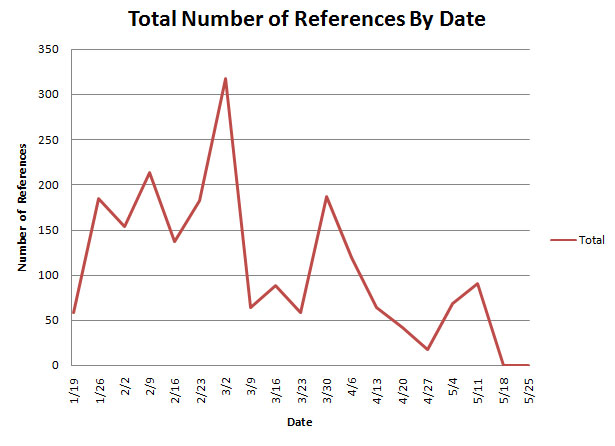Help! A question…
I realized today while we were looking at our images of a utopian existence between gender and technology that I still don’t fully understand the concept of randomness as it relates to 1) utopia and 2) gender and technology. I thought the point of a cyborg existence was to acknowledge the coexisting artificiality and natural-ness of one’s identity, thus bringing some kind of order and understanding to a previously misunderstood state. Or does randomness have anything to do with cyborgs, or was that just a connection I made up? I was puzzled by this statement in today’s class notes:
body is a product of technology:
desire provides the random element/interference necessary for intelligence
Any help would be greatly appreciated!
Comments are closed.

Hey, Michelle–what a great (=deep) question….
that note you noted was my shorthand for something that Halberstam said on p. 3 (of my print-out) of “Automating Gender.” Describing Alan Turing’s 1950 paper, “Computing Machinery and Intelligence,” she says that
“Turing claims that in both the human and the electric mind, there is the possibility for random interference and that this element is critical to intelligence…..Turing’s experience of gender instability suggest that the body may…be…a product of technology….; second, desire provides the random element necessary to a technology’s definition as intelligent. In other words, the body may be scientifically altered in order to force “correct” gender identification, but desire remains as interference running across a binary technologic.”
In my words? The capacity to be/act unpredictably is crucial to intelligence–as much/more than the ability to control outcomes, imo. Desire is one such “unpredictable”: that which we cannot know or control. Although I don’t think Halberstam links this particular vignette directly to her discussion of cyborgs, I think your instinct (the connection you “made up”) is accurate, since in the world of the cyborg, the human is embedded in the technological, and the technological in the human, as interference–> the intersection is an unpredictable one, with unpredictable outcomes.
Does that make sense/clarify? Or am I just making it more complicated?
Yes, that helps. I understand that desire is unpredictable, therefore offering an interference “running across a binary technologic.” Is the binary technologic Halberstam speaks of the binary between natural and artificial?
Also, I think I understand the last sentence of the “in my words” paragraph to mean: the technological involvement in a cyborg’s identity constitutes an interference, or an unpredictability, thereby making it, by definition, intelligent?
I’ll really have to revisit these ideas many more times to understand them, but (depending on the accuracy of my interpretation) I think I’m getting it… Thanks!
You’re right–this is still complicated, but we’re getting there. I think, yes, the “binary technologic” is the natural/artificial division. And it’s not only that technology “interferes” in the organism, but that the organic “interferes” w/ the technology–and that such “interference,” such “randomness,” such unpredictability, is essential to making the cyborg “intelligent.”
More on the unpredictability of desire (in spades),
in Sugar Spice’s most recent post and my response. See
http://gandt.blogs.brynmawr.edu/2009/01/29/what-do-women-want/
http://gandt.blogs.brynmawr.edu/2009/01/30/what-do-people-want/
(oh I HATE it that there are linking and picture-loading capacities in the commenting portion of this forum! growling…)